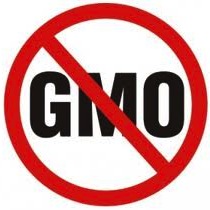 The jury is still out on whether genetically modified foods are bad for our health – there simply hasn’t been enough credible testing – but mounting evidence shows they are bad for the economy and bad for the environment.
The jury is still out on whether genetically modified foods are bad for our health – there simply hasn’t been enough credible testing – but mounting evidence shows they are bad for the economy and bad for the environment.
In the last month three genetically modified crops were partially or completely deregulated: alfalfa, sugar beets, and a type of corn used for ethanol production. GE salmon are awaiting a decision by the FDA because they are animals and not crops and the modification is considered a “new animal drug.”
Those decisions were essentially the “shots fired across the bow” of the organic industry and the result was pandemonium. Folks were running around sure that the sky was falling and – as panicked animals do – turned to attack each other.
In the end, it appeared that the sheer enormity of it all made the whole issue too big to handle and when “faced with insurmountable opportunities,” as Diana Crane, PCC Natural Markets, said at Organicology last week, many just threw up their hands.
If farmers, seed growers, and food processors and distributors – those folks who should actually know something about the issue – are confused, consider the consumers. They are pretty much clueless.
In response to the February 9th newsletter, I got this note:
“Unbelievably depressing week and just listing it all out with no follow up actions we can do makes me feel worse. But what can we do? We’re really lost on GMO.”
Well, folks, here are a few things you – and consumers across the country – can do:
- Get smart – Read as much as you can about the issue. We have listed a number of books of interest on the GoodFood World reading list. A Google search will launch you on your way on the Internet. Get to know about the issues on “both sides of the fence.”
- Get political – Contact your Congressmen and Senators and tell them how you feel. Let the President know by calling the President Obama Comment line at (202) 456-1111 or fill out the email form here: http://www.whitehouse.gov/contact/
- Get active – Comment on all the blogs/facebook pages/websites you can find that are even closely related; and tweet away. Make your voice heard.
- Get legal – Donate as much as you comfortably can to the Center for Food Safety – those folks are working hard on the legal front. There are several lawsuits in action right now and for a small group they are making a big difference!
- Get cooperative – Many food co-ops are certified organic retailers for one or more departments. PCC Natural Markets here in Seattle – the largest consumer-owned food co-op in the country – has just signed on to the Non-GMO Project. The PCC also gives preference to non-GMO products as part of their purchasing policy. Many other food co-ops are developing similar policies.
- Get apps – Here are three iPhone/iPad apps that you can use while shopping to select products that are GMO-free – search for:
Non-GMO Project Shopping Guide
True Food – the Center for Food Safety Non-GMO Shopping Guide
ShopNoGMO - Get labeled – The USDA and FDA do not require labels on GMOs or products containing GMOs. Talk to your political representatives and support the Center for Food Safety in their effort to use the legal system to require labeling of GMOs. It worked for BGH in milk. You can now buy conventional milk that does not come from cows treated with bovine growth hormone and is labeled as such.
- Get organic – To date, the best way to ensure that you are not consuming GMOs is to buy organic food. The National Organic Program does not allows any GMOs in fresh or processed foods.
- Get planting – Grow your own. There are dozens of seed companies across the US that offer organic seeds to farmers and consumers. When you grow your own food – even as little as lettuce in a patio pot – you control your own food.
- Get together – Find other people who feel the same way you do. Learn more. Teach more. When faced with “insurmountable opportunities,” grab one and get going.
A special thanks to Jim Riddle, Organic Outreach Coordinator at the University of Minnesota, for keeping me accurate!
